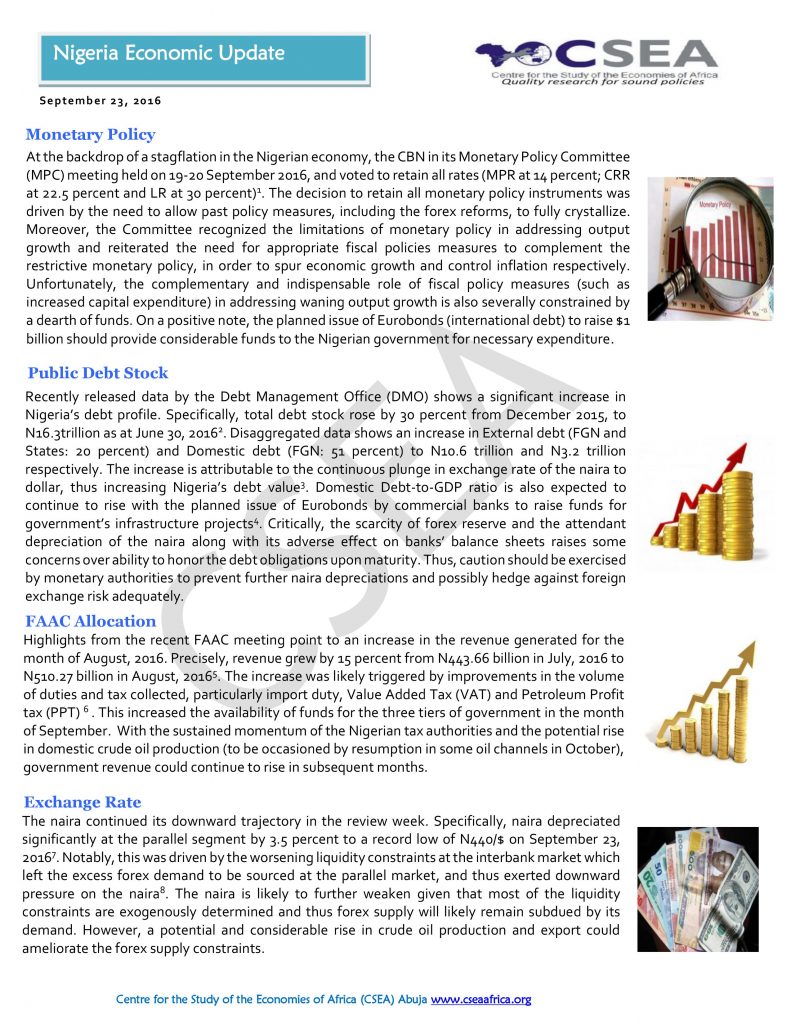Macroeconomic Report & Economic Updates

October 4, 2016
Nigeria Economic Update (Issue 41)
The
naira continued its downward trajectory in the review week. Specifically, naira
depreciated significantly at the parallel segment by 3.5 percent to a record
low of N440/$ on September 23, 2016. Notably, this was driven by
the worsening liquidity constraints at the interbank market which left the
excess forex demand to be sourced at the parallel market, and thus exerted
downward pressure on the naira. The naira is likely to further
weaken given that most of the liquidity constraints are exogenously determined
and thus forex supply will likely remain subdued by its demand.
Related
FDI, FPI And Other Investments 2
FDI, FPI and other Investments: The unusual fall in overall capital importation, especially in equity investment, in the late 2015 and early 2016 is attributable to the tougher macroeconomic and finan
Nigeria Economic Update (Issue 39)
The monthly monetary survey by the CBN shows a decline in money supply for the month of August 2017, relative to July 2017. Narrow and broad money supply dropped by 4.2% and 1.5% to N9,891 billion and N21,851 billion respectively. The continuous monetary contraction witnessed over the past months may be associated with aggressive sale of treasury bills by the CBN through open market operations. This act is capable of mopping up liquidity in the economy, reduce loanable funds in the banking system, and constrain the easing of lending rates in the near term.
Nigeria Economic Update (Issue 43)
The IMF World Economic Outlook report, indicates a downward revision for Nigerias 2017 economic growth. Specifically, growth has been projected to expand by 0.6 percent relative to the 1.1 percent earlier projected. The decrease is attributable to sharp growth slowdown experienced in Nigeria, occasioned by prevailing constraining factors (crude oil production disruptions, Forex and power shortages, and weak investor confidence). The outlook, which does not seem optimistic, reveals Nigerias further vulnerability to potential external and internal risks/shocks.
Nigeria Economic Update (Issue 36)
global Value
